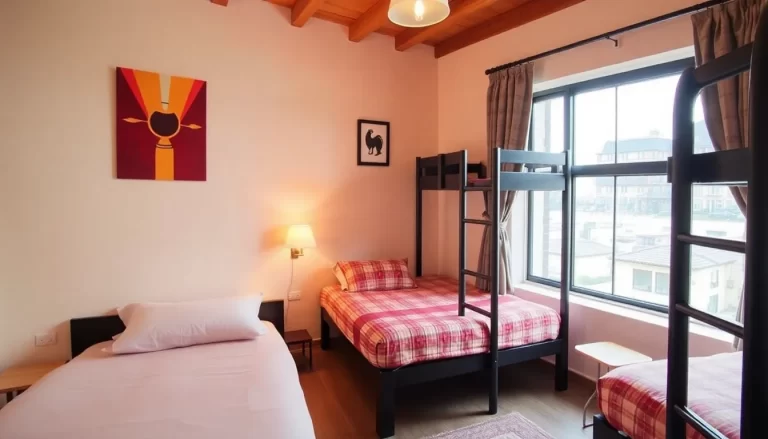Traveling is not just about visiting new places; it’s about immersing yourself in different cultures, connecting with people, and creating unforgettable experiences. One of the most effective ways to enrich your travel experience is by learning the local language. Even mastering a few key phrases can significantly enhance your interactions and understanding of the culture. Below, we’ll explore the many benefits of learning the local language before your next adventure.
Why is it important to learn the local language?
Learning the local language serves as a bridge between you and the culture you are visiting. It allows for deeper connections and a more authentic travel experience. When you make an effort to communicate in the local language, you show respect and appreciation for the people and traditions of the country you are exploring.
Additionally, speaking the local language can help you navigate your surroundings more easily. From asking for directions to ordering food, having a basic understanding of the language can alleviate stress and enhance your overall enjoyment of the trip.
How does speaking the local language help you save money?
One of the most practical reasons to learn the local language is to avoid being overcharged in touristy areas. When you can communicate effectively, you are less likely to be taken advantage of by vendors or taxi drivers.
- Understand local prices: When you know how to ask about prices, you are less likely to get ripped off.
- Negotiate: Being able to converse in the local language allows you to negotiate better deals.
- Avoid tourist traps: Locals often provide tips on where to find authentic experiences and the best prices.
For example, if you are in a market and can ask, «How much is this?» in the local language, you can gauge whether you are being quoted a fair price or not. This simple phrase can save you money and give you confidence in your transactions.
Why is it beneficial to learn local greetings when traveling?
Starting a conversation with a friendly greeting can set a positive tone for your interactions. Simple greetings like «Hello,» «Thank you,» or «How are you?» can break the ice and make locals more receptive to you.
When you greet someone in their language, it often leads to a warmer reception. People appreciate the effort you put into learning their language, even if it’s just a few words. This can lead to more engaging conversations and connections with the locals.
What are some additional reasons to learn another language?
Learning a new language has numerous advantages that extend beyond travel. Here are a few compelling reasons:
- Cognitive Benefits: Learning a new language can improve memory, problem-solving skills, and overall cognitive function.
- Cultural Understanding: Language is a key part of culture. Understanding the language helps you appreciate local customs and traditions.
- Career Opportunities: Being bilingual can enhance your job prospects and open doors to new career paths.
- Social Connections: It allows you to connect with a broader range of people, both socially and professionally.
- Personal Growth: Learning a language can boost your confidence and personal development.
Should I learn the language before traveling?
Yes, investing time in learning the local language before traveling can greatly enhance your experience. Even if you only learn a few key phrases, it can make a significant difference in how you interact with locals.
Consider focusing on essential phrases that will help you in everyday situations, such as:
- Greetings and polite expressions (hello, thank you, please)
- Common questions (how much does this cost? where is…?)
- Basic directions (turn left, go straight, etc.)
By doing so, you’ll feel more empowered to engage with the local culture and navigate your surroundings with ease.
How does learning the local language improve your social interactions?
Speaking the local language can facilitate friendships and social connections. When you can communicate with locals, you open the door to new friendships and meaningful interactions.
For example, during a trip to Spain, being able to converse in Spanish led to a memorable evening spent with locals who shared their culture, stories, and even home-cooked meals. These experiences often become the highlight of your travels.
What happens when you make an effort to speak the local language?
Making an effort to communicate in the local language often results in a more welcoming and friendly demeanor from the locals. They appreciate your attempt and may go out of their way to assist you.
For instance, a simple «gracias» or «merci» can elicit a smile and a friendly response, which can lead to a memorable exchange. It’s not just about speaking but also about the connections you build through language.
How does learning the local language enhance your understanding of a place?
Learning the language allows you to delve deeper into the culture, traditions, and history of the place you are visiting. It enables you to engage in conversations that go beyond surface-level interactions.
As you communicate with locals, you’ll learn about their way of life, traditions, and even hidden gems that aren’t mentioned in tourist guides. This deeper understanding can transform your travel experience from ordinary to extraordinary.
Can learning a language change your life?
Absolutely! Many travelers find that learning a new language not only enhances their travel experiences but also impacts their lives in profound ways. It might inspire you to explore new cultures, build lasting relationships, or even relocate to a new country.
For example, after learning Italian during a trip, many people feel compelled to immerse themselves further into the language and culture. This might lead them to pursue language courses, travel more often, or even consider living abroad.
Tips for learning a language effectively before your trip
Here are some practical tips to help you learn a language effectively before your travels:
- Use language apps: Apps like Duolingo or Babbel make learning fun and accessible.
- Take online courses: Enroll in language courses that focus on practical conversation skills.
- Practice with native speakers: Use platforms like Tandem or HelloTalk to practice speaking with locals.
- Immerse yourself in the culture: Watch movies, listen to music, or read books in the language you are learning.
- Join local language meetups: Connecting with others who are learning the same language can be motivating.
By incorporating these strategies, you can develop a solid foundation in the local language and make the most out of your travel experiences. The investment you make in learning a language will undoubtedly enrich your journey and create lasting memories.







